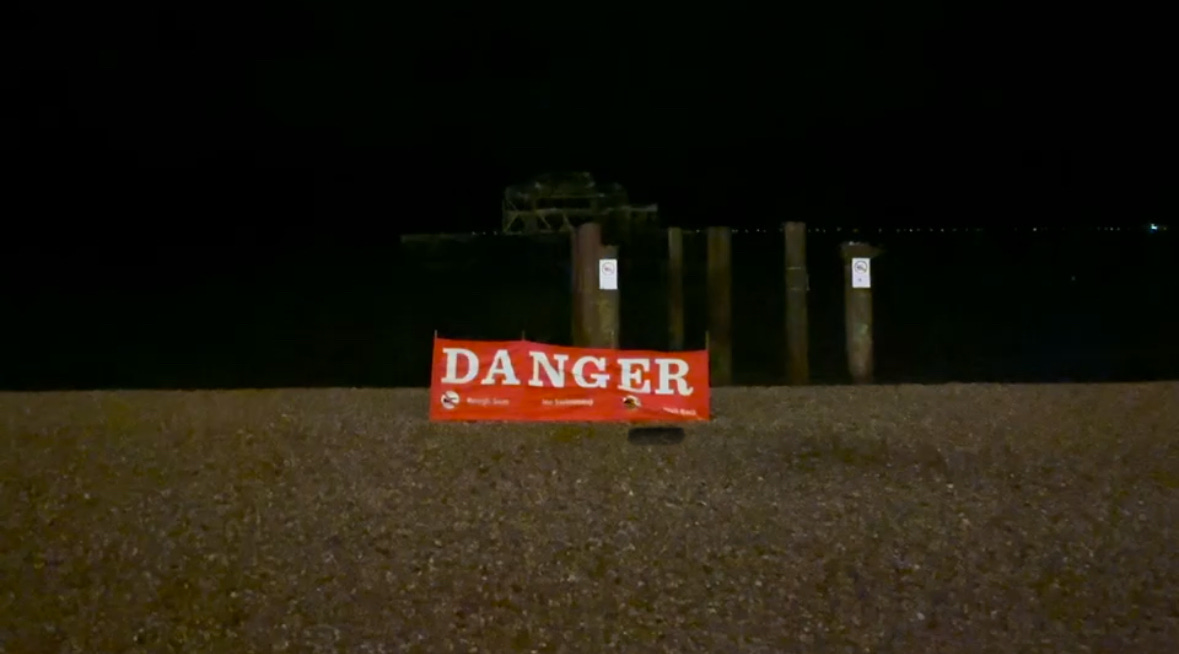Fear and Fury is Easy. But Choose What You Want More Of.
A response to the US Election result
I don’t do politics. I had another post lined up for this week. And then the US Election result came in. Emotions are running high.
I don’t do politics in Writing A Better World because it’s divisive, and though I imagine I have a left-leaning readership, it would be foolish to assume everyone in the US who appreciates my work would have voted for Kamala Harris. In fact, I know my beloved Uncle in Florida is a supportive subscriber, and he is a registered Republican. No question that with over half of US voters voting for Donald Trump, some of them will be my readers.
I don’t do politics publicly anymore because I am passionate about things like women’s rights, and it’s easy for me, as for anyone, to get swept up into fury and condemnation. Fury and condemnation would be the wrong flavour for what I’m trying to do both in these essays and in my spiritual practice.
I don’t do politics here. But I do talk about the value of processing difficult emotions. And this week, many of my readers have a great big vat of difficult emotions. So here goes.
I remember how it was waking up to the results of the Brexit vote in 2016. Fury, grief, despair and even hatred towards the politicians who had driven this through and those who had voted for it. I was enraged. I wept. The emotions were overwhelming.
And that — but on an intensified scale — is what left-leaning US citizens are dealing with right now. Brexit looked disastrous and led to a lot of people being forcibly ejected from the UK, but at least it didn’t look like it was going to kill people.
But based on the emotional processing I did eight years ago — shedloads of EFT tapping if you want to know — this was the Note I posted yesterday.
One of the responses was
Nope - sorry - I will forever demonize rapists and rapist supporters. Zero fucks given.
Yep. I get it.
Someone else posted that they won’t cook Thanksgiving Dinner for their Trump-supporting relatives. That sounds like a valid response. Never do anything that’s not aligned with how you truly feel.
But in the end, we are going to have to find our way back to each other, somehow, if we are going to hope to resolve the huge rifts opening up in our society. The tribalism. The name-calling. The assumption that the other side are idiots or misogynists or racists or homophobes or any other label we want to blast them with. Remember when Hilary Clinton called Trump supporters “deplorables”? Demonising the other side only ever makes matters worse, entrenching people in their opinions.
My dad voted for Brexit. And then voted in Boris Johnson, another populist blond-mopped sexist millionaire. Not a convicted felon, at least. But a man with a lax attitude to sexual assault. And in some ways, my dad voting for Brexit was really, really helpful. Which sounds crazy. But every time I started raging about “Tory Brexiteers”, my husband gently said, “Including your dad”.
Dad voting for Brexit was helpful to me because it forced me not to demonize everyone “on the other side.” Because I loved my dad. He died in 2020, before suffering the consequences of anything he had recently voted for. He was a gentle man, an intelligent man: a professor of Physics who had done internationally significant work. So it was incredibly difficult to square my visceral hatred for everyone who had voted against my best interests (as I saw it) when one of them was my Dad.
And yes, I had tried to persuade him otherwise in the run-up. When I pressed him not to vote Tory because they were dismantling the NHS, the thing that was daily keeping him alive at no cost to himself, and that his children and grandchildren still had whole lifetimes to rely upon, he said their local (Conservative) MP was a really decent chap who had helped them on an local matter he cared about.
Some people are voting on a single consideration, and closing their eyes to the bigger picture. Some are voting the way they have always voted. Some are voting based on party or family loyalty.
In a democracy, almost everyone votes based on partial information. Information has never been more partial than it is right now, thanks to the echo chambers of both mainstream and online media. Critical thinking isn’t widely taught. Many people follow their usual news source and simply take on other people’s opinions, either not feeling qualified or not having the time to form their own.
Many votes are fuelled by emotion; fear for the wage packet, fear of higher prices, fear of people who they don’t understand and perceive as a threat. Was your vote fuelled by fear, to some degree? We often vote to try to stop what we are scared of.
Other votes are fuelled by anger. Anger at what we perceive is happening. Anger at the names we have been called. Anger at feeling disenfranchised by a world that’s moving too fast for almost anyone’s comfort.
Yet look at an angry person, and what you’re really seeing is a fearful person. Anger is Fear dressed up in big boots, with weapons. Anger is fear fighting back. So when you see an angry person, assume they are fearful.
This is a useful trick. It’s easier to have compassion for a frightened person than an angry one. And though having compassion for frightened people can lead us to anger on their behalf (if we perceive them as part of “our side”), working towards having compassion for those we don’t agree with is hugely helpful, both for ourselves (it softens our own suffering) and for society as a whole.
Any scrap of compassion we can find for those we don’t agree with will go towards resolving the divisions that are poisoning society and rational discourse. These divisions are putting humanity at great risk; we are expending our energies demonising each other rather than working together to find solutions to the global problems that imperil us. We can keep blaming “them”, but that entirely disempowers us. We have the power to make a difference, even one-sidedly, even with “them” not on board.
It is “sides” that are the issue here. The two-party system in most Western democracies encourages it. With me or against me. Friend or enemy. Added to this, the stunted short-form rage-bait influence of the internet has brought out our worst qualities in allowing a tsunami of unfiltered emotional responses without social consequences.
Yet it is not so simple as “sides”. There are always policies from your own “side” that you disagree with. Sometimes you have to pick from the best of two not-great choices. Not here, perhaps. Here, perhaps, you consider the choice was starker. The other candidate was simply unthinkable. But still, a lot of people were voting on a single issue. Like how much their grocery bill went up under Biden. They don’t want the reason, the Economics. They just want enough left over after groceries that life doesn’t pinch. They want less worry about their future. So they gamble on the guy with big promises. Anxious populations vote for authoritarian leaders. So what we need more than anything is to start reducing anxiety.
We are going through extreme times. It’s a process. And it might well take society into some dark and violent places. If we want to do some good in the world, if we want our countries less divided, to be less at war with our own fellow citizens, our challenge — individually — is to stay afloat with an even keel. We cannot change other people, so the work is internal.
Ask yourself the following questions:
Do you want a populace that is less angry?
Do you want fellow citizens to choose their leaders more wisely?
Do you want a country that is less divided and more compassionate?
If we want to contribute to the balance of good in the world, then it is vital that we don’t sink into tribalism, condemning our fellow humans as ignorant, assuming their motivations, and calling them poisonous names.
Dysfunctional choices come out of dysfunctional pasts. The invisible traumas we carry, the painful experiences we’ve had. These are what define the things we most fear and, therefore, what we are prepared to vote for and against.
If we’re to mend the damaged moment where we find ourselves, it is down to us — each of us individually — to choose not to participate in the politics of division. To make the choice to see the humanity in everyone around us, even if we suspect they might not see us the same way. Even if they are deeply damaged individuals who are wreaking havoc.
We can assume everyone has some understandable human reasons for doing what they do, even if we don’t understand those reasons ourselves. Condemning them for their actions or beliefs won’t mend the rifts; won’t bring us peace or good feeling. It will only fuel more division and misunderstanding.
I’ve explored before how these times are an evolutionary driver. For us as individuals and for the species as a whole.
Humans 2.0
We live in an era that magnifies unhappiness. The 24-hour news cycle mines endless sources of misery and transmits them into our pockets. Social media algorithms heighten loneliness and addiction while rewarding and amplifying outrage and envy. The principle of idiocracy — that dimwits have no issue declaiming their every thought while the intelligent h…
You are responsible for your own emotions only, not anyone else’s. There are processes through which you can clear your anger or fear on any particular topic; I favour tapping, but you can drop your favourite in the comments. Developing a stronger emotional awareness and committing to better emotional processing, person by person, is the main thing all of us can do to build a better world. Then, through the ripple effect, we can make a significant difference.
And the main beneficiary of healing your fury and grief, sooner rather than later, using the tools available? Of course, it’s you.
+++ Likes are both free and priceless +++









This is a nice sentiment, but for a huge portion of the electorate this is naïve. For example, when I tried to calmly reason with my brother about how voting for the GOP would hurt me, himself, and other people, he called me a “fascist communist marxist” and every insult he could imagine. I also learned that he wanted to initiate the apocalypse and kill millions of people as part of a holy war. Not everyone on the “other side” is operating with a full set. Far from it. Democracy only functions when people are not (excuse my non-PC language) mentally retarded.
Thanks for this Ros. This approach resonates with me very strongly. It's not passive or rolling over and taking it - you seem to be arguing for another way of perceiving, beyond polarities. (Am thinking this non-polarised thought has much in common with post-modern feminist theory as well as mindful/contemplative practice) It doesn't mean one can't challenge damaging behaviours and argue and act for change. As you argue, to continue in the 'them & us ' rage simply perpetuates current divisiveness & works in favour of those who benefit from this way of thinking. Aint easy - but it is for me an act of resistance to the prevailing darkness.